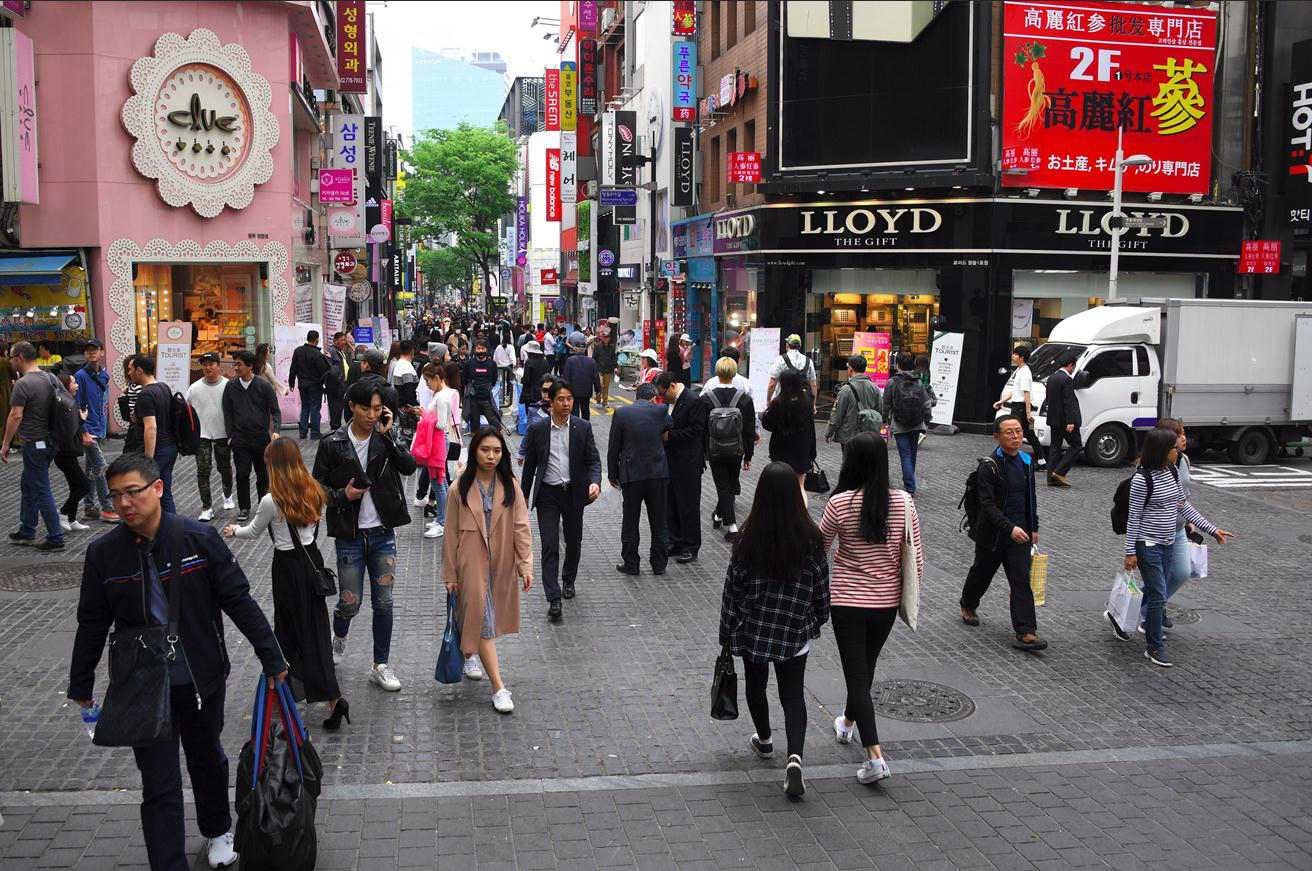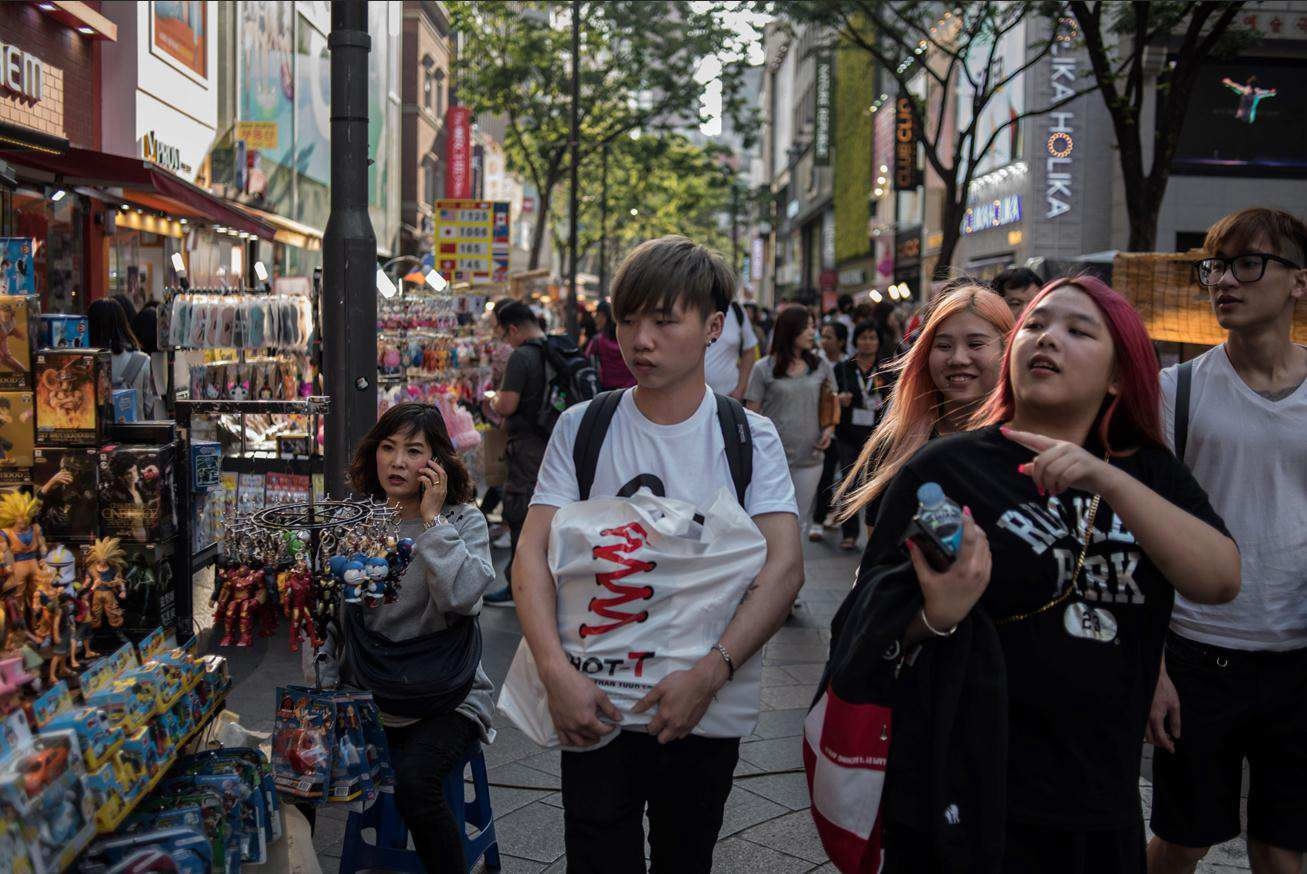
Culture & Sports
19:25, 03-Aug-2017
S. Korea posts biggest services account deficit on falling Chinese tourists

South Korea posted the biggest-ever services account deficit in the first half
of this year as a falling number of Chinese tourists visiting the country led to
a surge in the travel account deficit, central bank data showed Thursday.
Services account balance, which measures the flow of travel, transport costs and
royalties, logged a deficit of 15.74 billion US dollars in the January-June
period, according to the Bank of Korea (BOK).
It was up from a deficit of 9.78 billion dollars in the previous six-month
period, marking the largest-ever recorded by the economy.

People walk through the popular Myeongdong shopping district in Seoul on April 25, 2017. /AFP Photo
People walk through the popular Myeongdong shopping district in Seoul on April 25, 2017. /AFP Photo
The travel account deficit more than doubled at 7.74 billion dollars in the
first half, compared with 3.5 billion dollars tallied a year earlier. It was the
second-biggest figure in history.
Chung Kyu Il, director general of the BOK's economic statistics department, told
a press briefing that the number of Chinese tourists visiting South Korea
tumbled, while the number of South Koreans traveling abroad jumped.
The number of Chinese tourists visiting the country was 255,000 in June, down
66.4 percent from a year ago.
The transport account deficit logged a record high of 2.28 billion dollars in
the first half due to slump in the global shipping industry and the continued
effect from the bankruptcy in February of Hanjin Shipping, the country's former
No.1 shipping company.

Shoppers walk through the Myeongdong district of Seoul on May 18, 2017. /AFP Photo
Shoppers walk through the Myeongdong district of Seoul on May 18, 2017. /AFP Photo
Affected by the record-high services account deficit, the current account
surplus for goods and services plunged to 36.27 billion dollars in the first
half from 51.69 billion dollars a year earlier.
In June alone, the current account surplus was 7.01 billion dollars.
The current account balance, the broadest measure of trade in goods and
services, stayed in black for 64 months through June, keeping the country's
longest monthly surplus.
Current account surplus for goods amounted to 58.35 billion dollars in the first
half. It was down 6.6 percent from a year ago, but it was the second-biggest
figure ever recorded in the first half.

The view over the Namsan tower above central Seoul. /AFP Photo
The view over the Namsan tower above central Seoul. /AFP Photo
Primary income account, which gauges investment and interest income as well as
salary, was a deficit of 4.04 billion dollars in the first half, more than four
times 910 million dollars registered a year ago. It was attributable to domestic
companies paying dividend to foreign investors.
Financial account, which measures cross-border capital flow without transactions
in goods and services, registered an inflow of 32.69 billion dollars in the
first half.
Overseas direct investment by locals reached 17.41 billion dollars, while
domestic direct investment by foreigners amounted to 7.13 billion dollars.
Locals invested 42.37 billion dollars into overseas stocks and bonds, while
foreigners bought domestic stocks and bonds worth 23.13 billion dollars.
(Source: Xinhua)
952km

SITEMAP
Copyright © 2018 CGTN. Beijing ICP prepared NO.16065310-3
Copyright © 2018 CGTN. Beijing ICP prepared NO.16065310-3